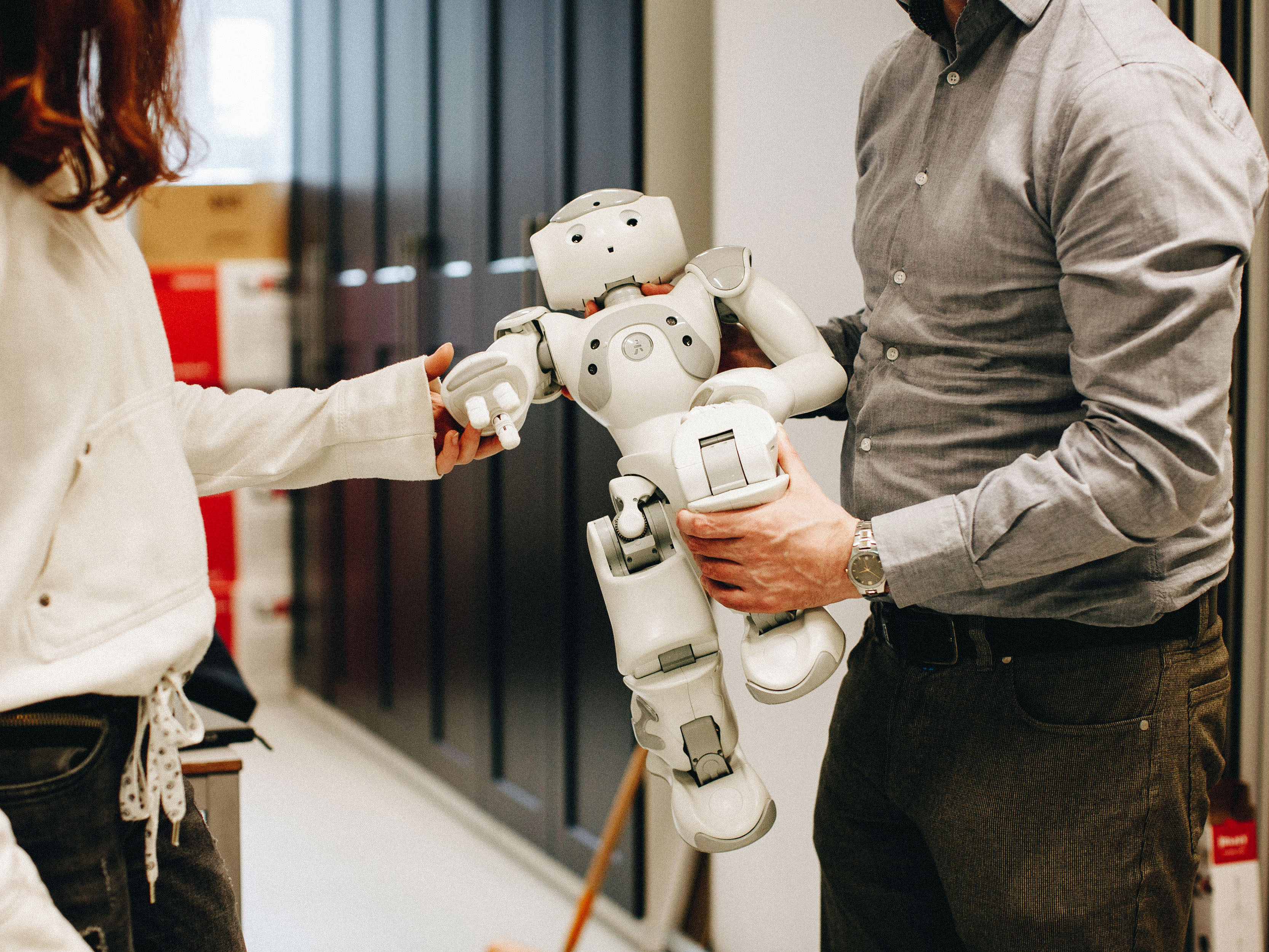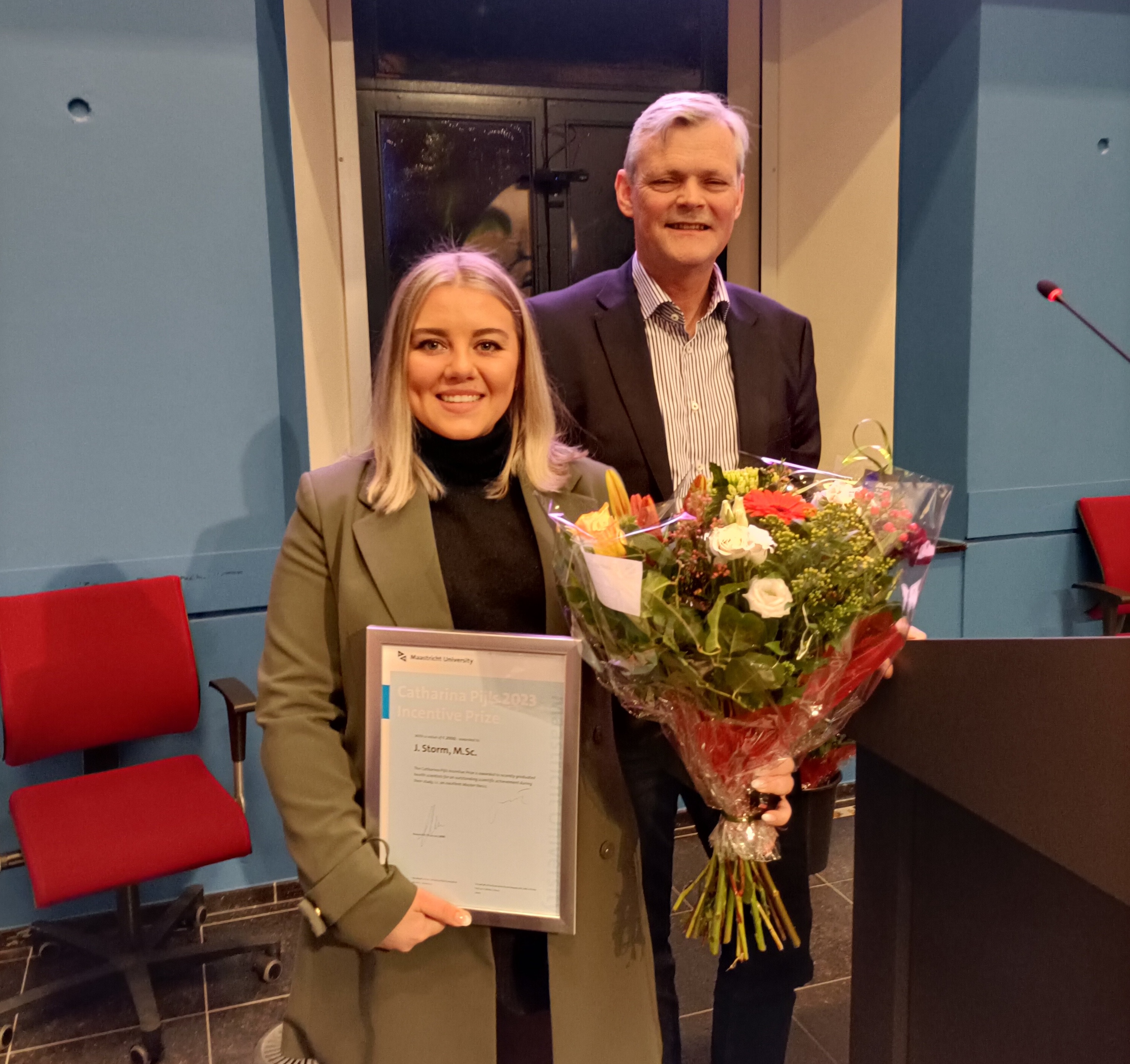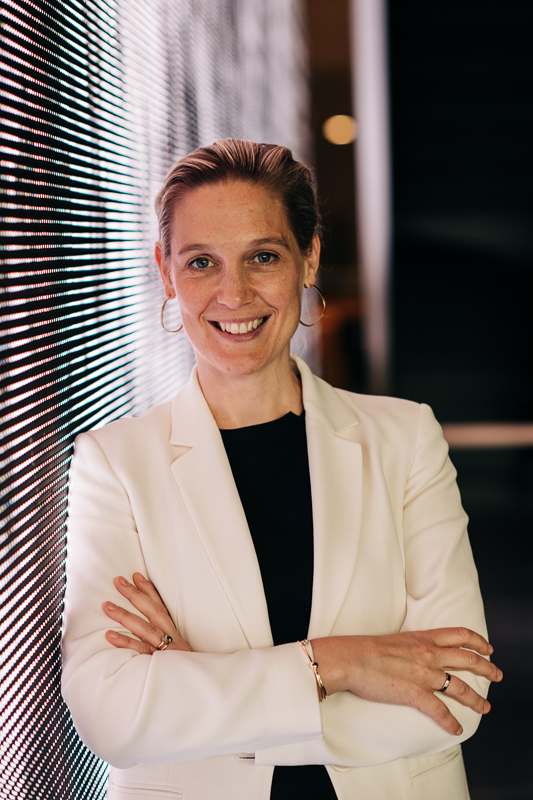Law students employed as neighbourhood mediators
Councillor Jack Gerats awarded the first certificates to 18 new youth neighbourhood mediators. Maastricht is the first city in the Netherlands where students go into neighbourhoods as youth neighbourhood mediators to bring students and local residents closer together. Two of them discuss their motivations.
Roos van den Bekerom, a master’s student in Dutch Law, learned about neighbourhood mediation through her internship supervisor. “I didn’t know about it, but it seemed like a nice project. I’d like to contribute to society, and I learn from it as well.” Roos has already had success. “A man in the neighbourhood was having problems with the students living next door. The students called the police because it was difficult to have a conversation with the neighbour. We went with two mediators to speak with both parties, to hear all sides. That led to telephone numbers being mutually exchanged. Now, if friends come to visit, the students let their neighbour know.”
Rhythms of life
In a relatively young student city like Maastricht, the original inhabitants did not grow up with students in their neighbourhood. Dissatisfaction with student behaviour often arises because of their different rhythms of life and a lack of understanding. The use of youth neighbourhood mediators (JBBs) is a good way to prevent escalation, says Roos. “As JBBs, we always go with two people. We’ll steer the conversation some, but we’ll let the parties reach a solution themselves. It’s nice to see that insight often arises when there’s also room for emotions.”
Dünya Gezgin, a bachelor’s student in European Law School, has experienced that as well. “I live in an apartment complex with students in Scharn. There we’re in our own student bubble; we’re not involved in those issues. To me, it was an eye opener to see what’s happening between students and residents. Since I’m a JBB now, I’m also getting to know the city better. In the Brusselsepoort neighbourhood, I mediated a conflict with a real ‘Maastrichtenaar’, which was very nice.”
Roos and Dünya had good experiences with the two-day training, which was recognised by the Dutch Centre for Crime Prevention and Safety (CCV). “We learned to listen neutrally, without passing judgment”, Dünya explains. “Different discussion techniques were also covered. For example, it’s good to ask for confirmation of what you think the other person is saying and we try to avoid the question of ‘why’.”
Limmel
The majority of the JBBs are law students at Maastricht University. Last year, they were closely involved in bringing residents together with students from the Hotel Management School in Limmel. By involving the city’s Team Handhaven, the Hotel Management School, student association Amphytrion, the police, social welfare organisation Trajekt and the neighbourhood council, the problems could be adressed. First, information meetings were organised in the evenings for neighbourhood residents as well as for student houses and their homeowners. Then, the mediators spoke with 11 student houses in Limmel and 14 complainants. “Three student houses were designated as ‘hot spots’”, says Roos. “We had conversations with students in those houses and their neighbours. Together, we made agreements, which also involved the owners of the student houses. It’s important that they also know what the agreements are and inform new students that come to live there, because students move quite often and newcomers don’t know what’s happened in the past.” For the same reason, there will be follow-ups every six months in Limmel, at the beginning of the academic year and in February to confirm the agreements that were made.
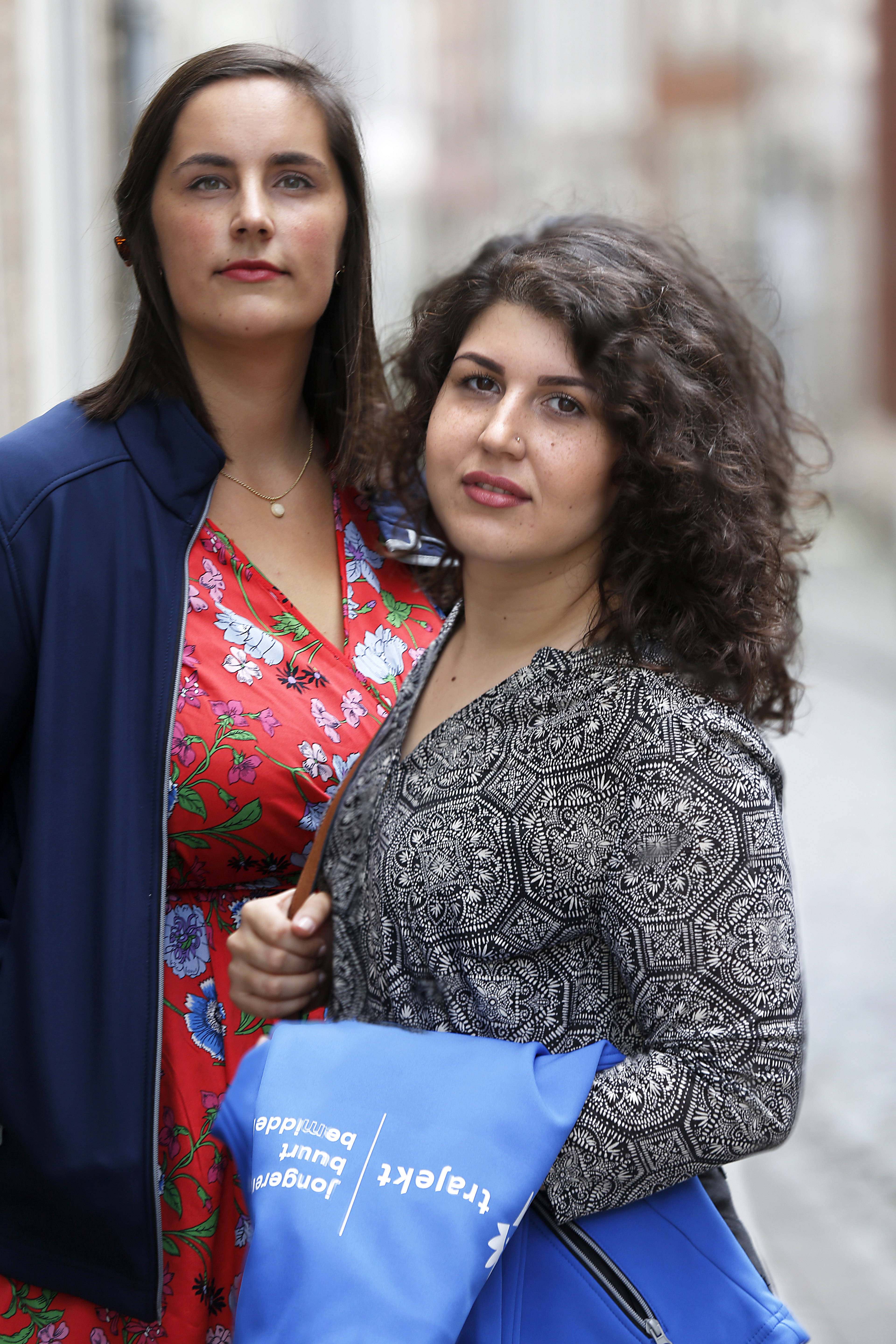
Roos van den Bekerom (1992) is a master’s student in Dutch Law, specialising in Private Law. She has been living in Maastricht since 2011 and has been an active member of student association KoKo, including a year as president in 2014/15. Since March 2017, she has worked as a youth neighbourhood mediator.
Dünya Gezgin (1996), a bachelor’s student in European Law School, will start two master’s programmes in September: Criminal Law; and Forensics, Criminology and Law. In addition to her work as a youth neighbourhood mediator, she works as a student buddy and as a student assistant for Hans Nelen, professor of Criminology.
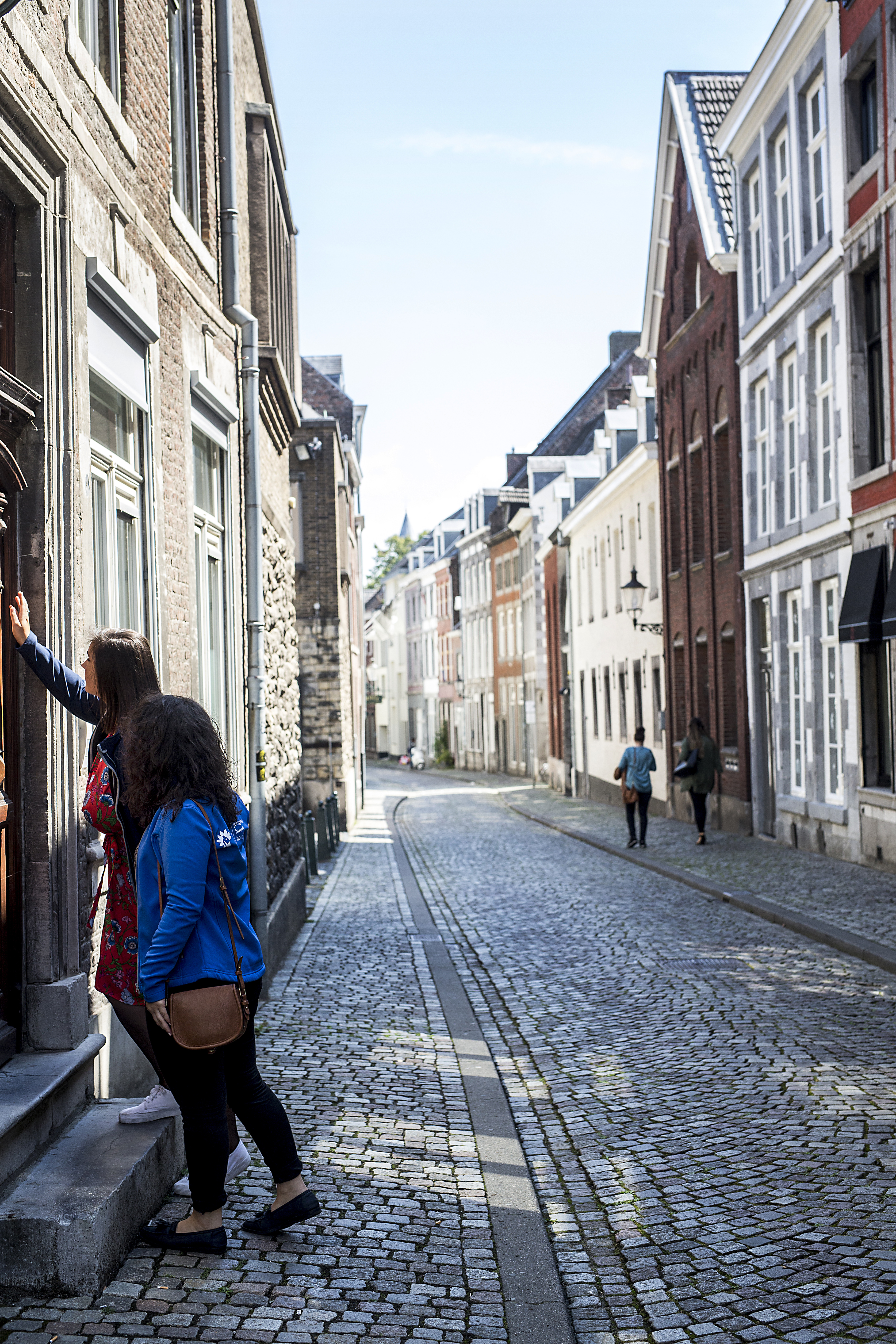
Ignorance
Neighbourhood mediation is part of the Student & Stad project, an initiative of the municipality and Maastricht University, among others. The project aims to improve the relationship between Maastricht residents and students. Therefore, the youth neighbourhood mediation is also affiliated with the Student & Stad project Match, which works to increase the social involvement of students in the city and the surrounding region. Match answers the demand for social services with the offer from the student community. This way, Match hopes to show that the city and its residents can benefit from the presence and qualities of the many students in Maastricht.
Because the approach seems to work, the youth neighbourhood mediators also plan to start working with ‘notorious’ student houses in Brusselsepoort-Oost, Belfort, Heer and Centrum. The idea is to move the students towards a mediation conversation with their neighbours. “It works best if you have this type of conversation when it’s quiet, not when there’s a party going on”, explains Dünya. “The nuisance caused by students is rarely due to unwillingness. Much more often, it’s ignorance. And the students are not always the villains; sometimes pre-conceptions and prejudices play a determining role.”
Roos and Dünya do not regret their decision to become JBBs. Roos: “As a student, you see that a lot of daily life in Maastricht passes you by. I think it’s good to get in touch with local people in this way, too. Neighbourhood mediation expands my social world.”
The project is coordinated by the welfare organisation Trajekt. The group now consists of 30 young people.
text: Meyke Houben
photos: Sacha Ruland
Also read
-
Last year, Maastricht University further strengthened its profile in science and technology by launching a Bachelor in Computer Science. The response exceeded all expectations, with the first cohort of 300 students from all over the world starting the programme in September. “Computers and...
-
The healthcare sector is facing limited resources. Without smart innovation, quality of care is at risk for all patient groups. Jessica Storm, an alumna of the master’s programme Healthcare Policy Innovation and Management, researched the cost-effectiveness of fall prevention for one of the largest...
-
Were you absolutely cruising through your exams? Were you well prepared with plenty time to spare? Then Anique de Bruin’s work won’t change your life. But for everyone else, the Professor of Self-regulation in Higher Education has useful insights and tools. Together with a refugee scholar financed...
